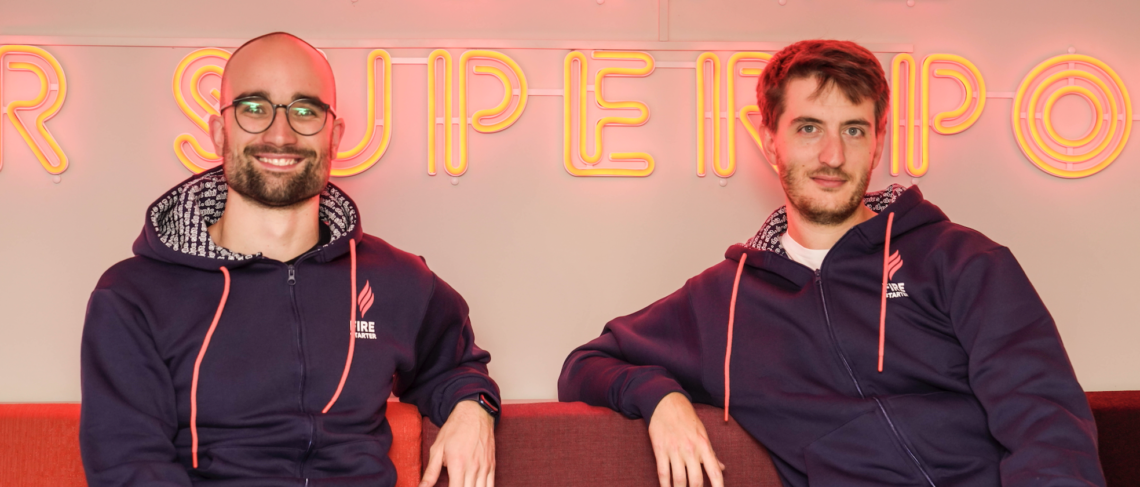QuantumDiamonds is developing atom-sized quantum sensors that make use of quantum effects to push the boundaries of what can be measured. The technology promises to be a game changer in sectors such as semiconductor manufacturing, medical diagnostics, and battery development.
The German startup, a spin-out of the Technical University of Munich, beat 59 other teams to win first prize at the university’s annual Demo Day on December 5.
QuantumDiamonds produces its core technology with defects in synthetic diamonds known as nitrogen-vacancy (NV) centers. These defects are then manipulated to detect and measure physical quantities with precision. Think of it as a kind of next generation microscope.
“Our mission is making the invisible visible,” “says CEO Kevin Berghoff, a former McKinsey consultant who teamed up with quantum scientists to commercialize the technology. “Things are getting smaller in every domain. If we don’t have the right tools, we will need to stop making things smaller and more efficient, so I see the company as an enabler of progress.”
QuantumDiamond’s technology “can detect little defects or changes in any kind of material, allowing for quicker diagnosis of COVID, protein or enzyme screening, or quality control in semiconductors,” says Berghoff. “This is a technology that can make a real difference.”
The company is currently testing with four of the world’s top 10 semiconductor manufacturers.
The semiconductor industry is constantly pushing for smaller and more efficient electronic circuits, but as devices become more complex, it becomes increasingly difficult to conduct quality control and analyze and diagnose failures. When combined with machine learning, QuantumDiamond’s technology promises to enable non-invasive detection of aberrations, improving quality control. It claims to also be able to detect malicious circuity or hardware trojans. “Given the potential hardware security risks associated with the Internet of Things we predict that tools of this type will become important in a range of industries, both for continued monitoring of high value systems and or spot check devices during assembly,” says a white paper produced by QuantumDiamonds.
Healthcare is another sector that could benefit from the technology. From biomarkers to imaging, sensing is a vital aspect of the healthcare industry, as it allows doctor and healthcare providers to gather info about a patient’s condition.For example, a project called DiaQNOS at Johannes Gutenberg university is working on a new generation of intraoperative functional diagnostics and tumor detection using a novel QuantumNeuro Analyzer that leverages diamond-based quantum sensing. The technology is expected to help surgeons determine where the exact line is between fully functional and tumor tissue.
The technology could also make a potential impact on the understanding of a variety of neurological disorders, such as Parksinon’s and Alzheimer’s, according to QuantumDiamonds’ white paper. Microscale imaging of the voltage generated from the firing of neurons in tissue samples can increase understanding of how neural networks flow, alter and function over time. However the smallest electrodes currently available can’t reliably distinguish signals from individual neurons, which are about 20 millionths of a meter in size, making it challenging to understand the networks of connections between them. NV-based microscopy has been used for a proof-of-concept measurement for this application.It could also be used to record nerve impulses, enabling the control of artificial limbs. A more precise way to get signals from the brain and translate them into the movement of prosthetics and exoskeletons would allow patients to have more accurate control over their devices and their movements.
Diamond-based quantum sensing could also make it practical for general practitioners to use lab-on-a-chip technology in their offices instead of sending tests to lab, says Berghoff. Lab-on-a-chip devices offer advantages over traditional lab techniques, including the ability to perform complex functions using small sample volumes, increased reproducibility, and high throughput. Atom-sized quantum sensors can be used to detect small changes in magnetic fields, enabling the measurement of enzymes, cells, or other biological entities. They can also be used to detect small changes in electric fields, enabling the measurement of the concentration of ions, PH or other chemical parameters.
Quantum sensing technology is also poised to help in the development of more sustainable, durable and efficient batteries by helping to understand the process of battery degradation. Currently, imaging the degradation within individual cells requires a battery’s destruction. Not only does this heavily hinder studies , it also makes in situ or time resolved measurements impossible. The high electric field sensitivity of using NV-doped nanodiamonds dissolved in liquid electrolyte can allow for reconstruction of the electric field as well as the electrolyte concentration within a battery, ultimately improving the understanding of battery degradation and allowing for state-of-charge monitoring from within a battery, according to the white paper. Another improvement over current technology is the imaging of defects in battery cells using their effect on an external magnetic field. The metal casing of most batteries is a hindrance for many analysis technologies since most radiation can only poorly penetrate into the batteries. Quantum sensing technology also have the potential to measure the transport of charge carriers, such as Li-ions, within the battery itself.
Other sectors that could benefits from quantum sensing include biochemistry, space and fundamental research. For more on the technology’s potential applications click here.
The German startup competes with several startups, including Quantum Diamond Technologies,a Harvard University spin-out. QuantumDiamonds says its differentiator is “we think we have the best diamonds and the better the diamond the better you can sense,” Berghoff says.
The German startup raised €7 million in seed funding led by IQ Capital and Earlybird on November 27. It already has a working prototype and will use the investment to hire more quantum engineers as it moves towards building its first commercial product.
This article is content that would normally only be available to subscribers. Sign up for a four-week free trial to see what you have been missing.
To access more of The Innovator’s Startup Of The Week articles click here.







